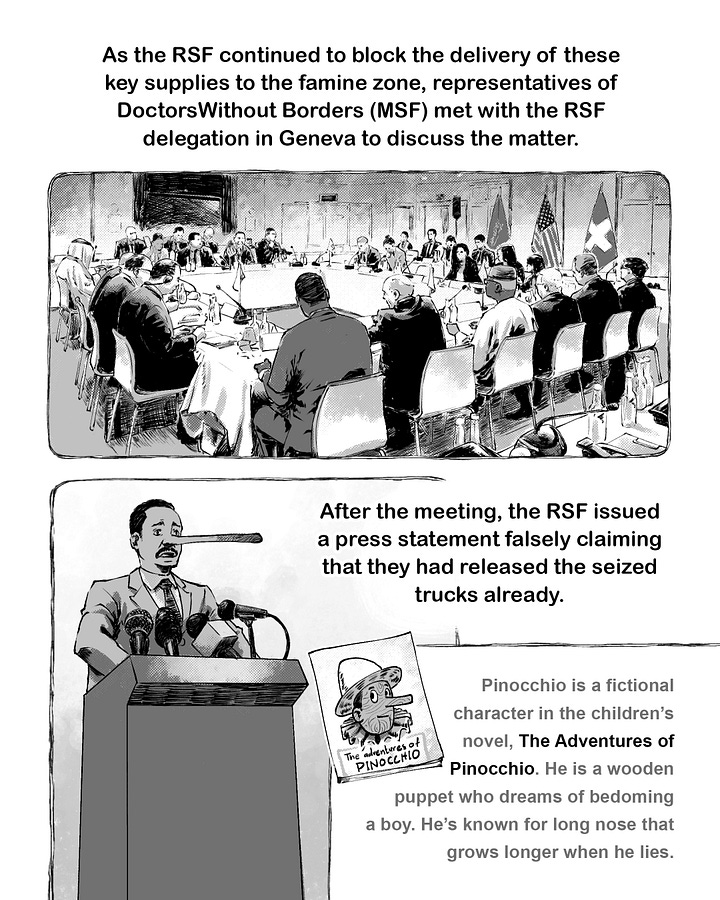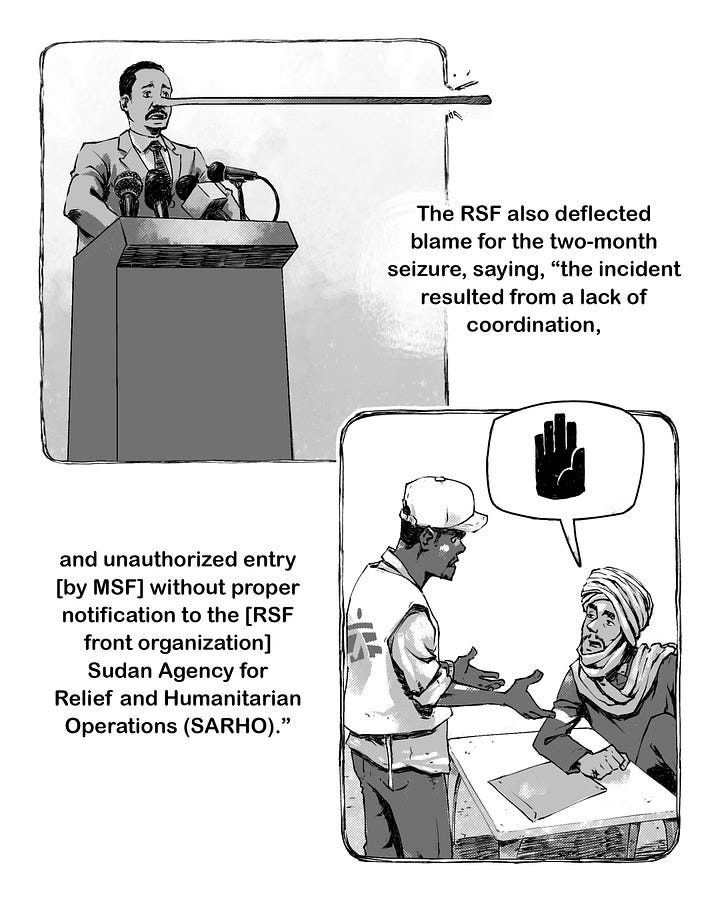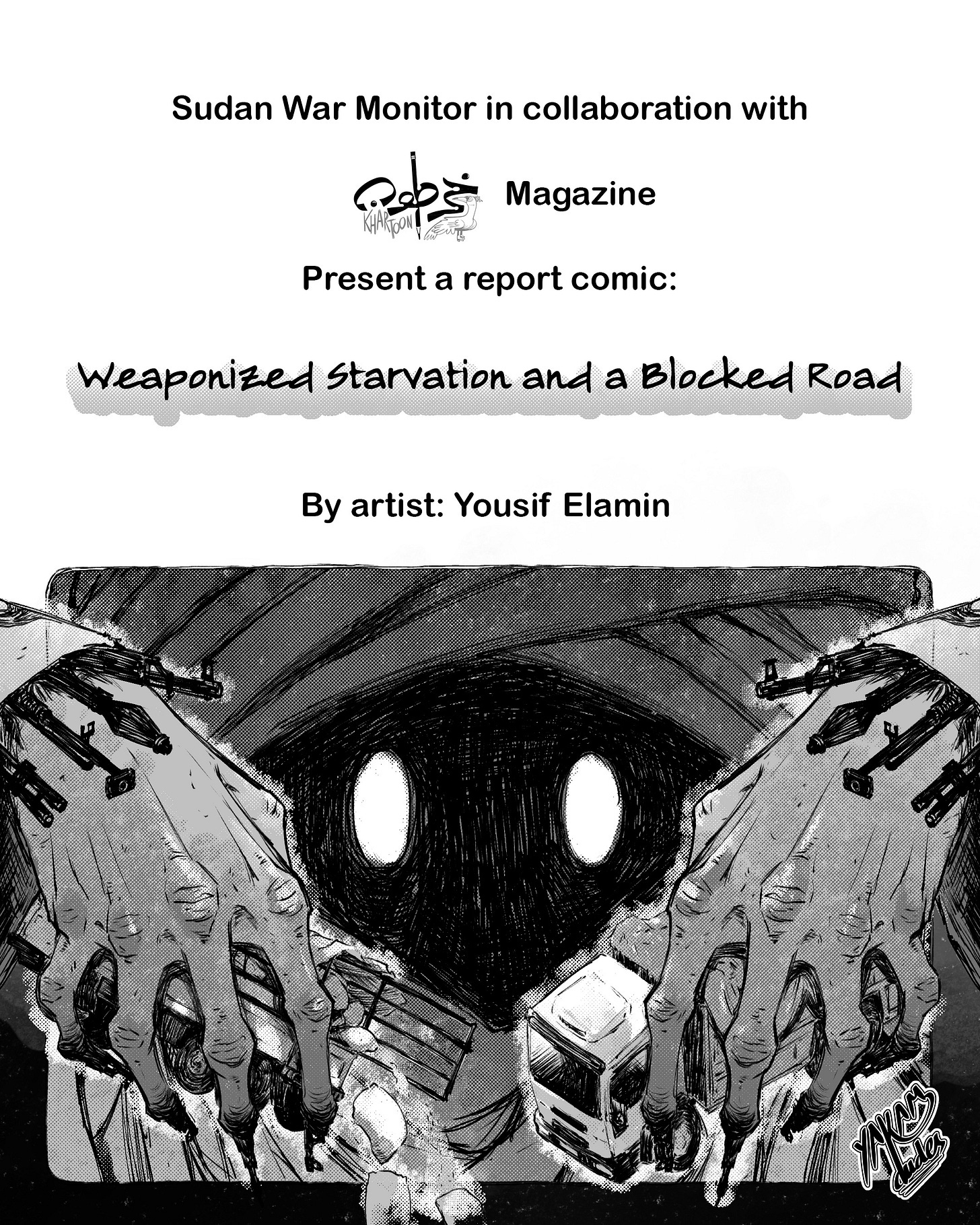Sudanese military arrests Christians fleeing fighting in Khartoum Bahri
Military Intelligence targets members of Aliziba Church Bahri
Military intelligence officers in Shendi, Sudan, have targeted Christians fleeing from fighting in Khartoum Bahri, subjecting them to arrest, accusations, and ill-treatment for nearly two weeks, according to Sudanese civil society organizations.
The detainees were arrested in groups between October 2 and 7 and include 16 men, 25 women, and 54 children, according to Osama Saeed Musa Koudi, president of the Sudanese Christian Youth Union, as quoted by Altaghyeer online newspaper.
These exact figures differ somewhat in other press reports, and the children and women were subsequently released. The detainees are members of the Sudan Christian Church Al Iziba, located in Khartoum Bahri, also called Khartoum North. Their leader, Evangelist Al Zibair Hassan Al-Ramla, was among those detained.
The nonprofit Justice Africa Sudan issued an urgent alert about their arrest, saying,
“According to our source from the church, the group decided to leave Bahri in Khartoum state and go to Shendi, River Nile State, due to intensive fighting in their area… All of them are from the Nuba Mountains, and they have been arrested in groups by the military intelligence of Sudanese Armed Forces (SAF) on the 6th October 2024 in Shendi, suspected of being collaborators with the RSF.”
The current civil war between the Sudanese Armed Forces (SAF) and the Rapid Support Forces (RSF) is not a conflict between Muslims and Christians; fighters on both sides are mostly Muslim, and both sides are security organs of the long-time Islamist dictatorship of General Omar al-Bashir, which have now turned on each other.
However, ethnic and religious minorities are sometimes targeted by one or both sides, including the Masalit tribe, whose members were massacred by the RSF and allied Arab militias in Darfur last year, and South Sudanese refugees.
In this case, the Nuba Christians appear to be scapegoats, suspected of collaborating with the Rapid Support Forces. They stayed in Khartoum Bahri after the RSF took over the area last year, and fled after fighting picked up following the launch of a Sudanese army offensive three weeks ago. Many residents of the city had already fled Bahri last year, but the latest fighting has triggered a new wave of displacement.
New arrivals in River Nile State are viewed with suspicion, particularly these Christians. According to Justice Africa, “These arrests are part of a large crackdown on… people who managed to stay in their areas during the occupation of the Rapid Support Forces. The Sudanese Armed Forces military intelligence and their allied militias continue to arrest and detain activists and people who managed to stay in their areas because they didn’t have the means to leave… This situation is critical as we learned they are subjected to questioning and maltreatment.”
Politician claims detainees were released
Hours ago, Mubarak Ardol, a Nuba politician affiliated with the current military regime in Sudan, wrote on social media platforms that he had secured the release of 14 detainees this morning, while two are still held for investigations. However, we haven’t received independent confirmation of this yet, and his statement appears timed to deflect media coverage of the treatment of these detainees. Ardol wrote,
“Intelligence agencies have the right to be vigilant during these times, especially in areas affected by frontlines, while citizens have the right to move freely and obtain protection… Many thanks to those who followed the case, and to the church that kept internal communication about the case, and also to the intelligence leadership in the Shendi region for treating us respectfully. We also thank the coordinator of the Darfur region who followed this case with us.”
Although the detainees were held for nearly two weeks, news of their detention only recently began circulating in Sudanese Arabic press reports and social media.
Ardol said he would follow up with the case of the two men still held by military intelligence. Meanwhile, the women and children of the church reportedly are living in squalid conditions in the courtyard of a church in Shendi, like many Sudanese displaced by conflict, who have fled to other cities, neighboring countries, displacement camps and refugee camps in search of safety.
‘Racist behavior’
Although the current conflict between the Sudanese military and RSF is not a religious one, Christians from the Nuba Mountains are still sometimes viewed with suspicion because that region is the scene of a longer-running conflict between the military and the Sudan People’s Liberation Army (North), also called SPLM-North.
The conflict has died down in recent years but remains unresolved. After the popular revolution of 2019, which toppled Omar al-Bashir, fighting in the Nuba Mountains largely stopped, but hardline members of the military and security services want to continue the war, and SPLM-North has conducted attacks of its own. Presently, the Sudanese military is severely weakened and distracted by its fight with the paramilitary RSF, and it has not conducted major operations in the Nuba Mountains.
Recent negotiations between the SPLM-North and Nuba leaders, held in the South Sudanese capital Juba, have reduced tensions and raised the possibility of a humanitarian access route directly into the Nuba Mountains.
The same church, Al Iziba Christian Church in Khartoum Bahri, was bulldozed in 2014, near the start of the conflict between SPLM-North and the Sudanese military.
In a statement Friday, the Nuba Mountains Lawyers Union condemned the arrest of 16 men from the church by the military intelligence in Shendi, describing it as racist behavior against the people of the Nuba Mountains.
A statement issued by the union on Friday said that freedom of movement is one of the human rights guaranteed by the constitution, international law and Sudanese law, which stipulates the illegality of extrajudicial detention.
The statement held the governor of River Nile State, the State Security Committee and the Military Intelligence of the 3rd Infantry Division in Shendi responsible for what happened and what will happen to the detainees and their families.
The statement called on the authorities to release all detainees immediately without any conditions and allow them to go to any safe place in Sudan they want to go to.
Similarly, the opposition Sudanese Congress Party, which opposes the current war, released a statement condemning the “arbitrary arrests and violations committed by the security cell in Shendi against the displaced people of the Nuba Mountains… who were displaced from the city of Khartoum Bahri recently, after the escalation of military operations in some of its areas.”
“We, in the Sudanese Congress Party, condemn this heinous crime, and we see that it comes in the context of what the security cells and their organs in the areas controlled by the Armed Forces have been engaging in, targeting Sudanese men and women on ethnic, regional and political grounds. It falls within the long list of violations by both parties to the damned war, which inevitably requires the use of the tools of justice and law. We hold the Port Sudan government authority fully responsible for the safety of the sons of the Nuba Mountains detained by the military intelligence in the city of Shendi and for the circumstances and conditions of their detention, and we demand that they release them immediately, and refrain from committing further violations for the same illegal motives…”
Additional civilians, both Christian and Muslim, are at risk of death in Khartoum Bahri due to ongoing fighting, which involves shelling, airstrikes, and crossfire. The RSF dominated most of the city since mid-2023, while the army were relegated to two besieged pockets in the Kadroo suburb north of the city and around the infamous Kober Prison in the south of the city.
However, the army launched an offensive last month from neighboring Omdurman, relieving the siege of the Kadroo area and giving the army control of the Halfaya neighborhood. SAF have also recently extended their control deeper into Dardoog, Samrab, and other neighborhoods, while the RSF remain in control of the populous Shambat District, Kafouri, the Light Industrial Area, and other neighborhoods.
Additionally, the RSF control the countryside north of Khartoum Bahri, including the heavily damaged Jaili Refinery complex and surrounding deserts. This makes escape from the city difficult for civilians, because they need to cross an active frontline.
Heavy fighting recently took place along the border between Khartoum State and River Nile State. The RSF appear to have repulsed a Sudanese army advance along this axis and inflicted heavy losses. This fighting, and fear of further clashes, caused approximately 12,000 citizens to flee from villages in the area (southern Shendi Locality), according to preliminary estimates from the International Organization for Migration, a UN agency.
The military situation in Khartoum Bahri remains volatile and additional fighting could trigger further waves of displacement toward River Nile State.
Nutrition services halted for hungry kids
Meanwhile, Doctors Without Borders has announced the suspension of outpatient treatment for malnourished children in famine-struck Zamzam displacement camp in Darfur, Sudan. Approximately, 34% of children in Zamzam suffer from acute malnutrition, according to a recent study by the aid group.
In a press release Thursday, MSF said it has halted outpatient treatment for 5,000 malnourished children, including 2,900 with severe acute malnutrition. However, it is still operating an 80-bed hospital to treat children at the greatest risk of dying.
For months, Doctors Without Borders (known by its French acronym MSF) has negotiated with the Rapid Support Forces (RSF), which controls the territory around Zamzam Camp, and with the other warring parties, to try to secure the delivery of supplies to the camp, which is home to about 450,000 people.
MSF's Head of Emergency Operations Michel-Olivier Lacharité said, “In the last few days, we've seen some positive signs, with trucks arriving after months of almost complete blockade around the camp. However, these quantities are insufficient.” MSF estimates that it would take 100 trucks per month to feed the camp at an emergency ration of just 500 calories per day.
MSF did not specifically blame the RSF in its latest press release, but in September the aid group noted, “Most supply roads are controlled by the RSF who have made it all but impossible to bring therapeutic food, medicines and essential supplies into the camp since last May. The only food available is from pre-existing stocks, which is not sufficient for people living in the area. Our staff on site report that for many, it's impossible to rely on more than one meal per day.”
Lacharité added, “There is an urgent need for a massive supply of nutritional products and food to help people, it is currently a catastrophic situation. MSF is calling on the various stakeholders, the governments, the allies of the parties to the conflict, the Rapid Support Forces, the Sudanese Armed Forces and the Joint Forces, to facilitate humanitarian aid delivery to the camp.”
In collaboration with Khartoon, an artists’ collective publishing political cartoons and graphic reports, we present this graphic report detailing events leading up to this decision. The artist created the report prior to MSF’s latest announcement, so that it does not reflect the latest information from the Zamzam Camp.
Nevertheless, it is a timely report, considering the latest news. These cartoons are part of an effort to raise awareness about the war, draw attention to the plight of victims, identify perpetrators, and use different forms of story-telling.














